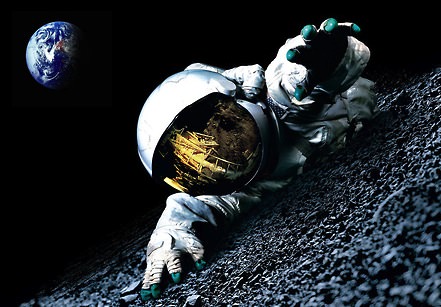A new report from the New York Times says the human body is not prepared for life in space. The challenges human beings would face in space could lead to long-term problems.
According to the report, humans “did not evolve to live in space.” The article describes what astronauts experience while in space. It quotes NASA astronaut Mark E. Kelly, who took part in four shuttle missions, and lists the problems encountered by astronauts Michael Barratt, from NASA, and Robert Thirsk, from the Canadian Space Agency, in 2009.
“Your head actually feels bloated,” said Mark E. Kelly, a retired NASA astronaut of four space shuttle missions. “It kind of feels like you would feel if you hung upside down for a couple of minutes.”
Those symptoms led some to consider artificial gravity rooms, created by spinning the spacecraft at great speeds, but, until now, the potential complications weren’t considered equal to the benefits.
But the worst consequence of space travel is radiation, which, at the moment, can’t be controlled, in actuality or in theory, according to the Times. Without the benefit of earth’s atmosphere, astronaut’s face tenfold the exposure. As per NASA’s rules, astronauts are not to accrue enough radiation to increase their chances of cancer by three percent. Except there hasn’t been enough research to prove exactly how much space time leads to that three percent.
“What are the long-term implications?” Barrat said. “That’s the $64 million question.”
Of course, the answer is worth significantly more. If NASA or other space agencies wish to send an astronaut to Marsv– a trip that would take at least over two years — they’ll want to make sure they don’t return poisoned.
“My goal,” said John B. Charles, chief of the international science office of NASA’s human research program, “is to see a program that doesn’t deliver an astronaut limping to Mars.”
Agencies/Canadajournal
 Canada Journal – News of the World Articles and videos to bring you the biggest Canadian news stories from across the country every day
Canada Journal – News of the World Articles and videos to bring you the biggest Canadian news stories from across the country every day



